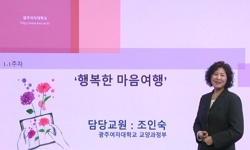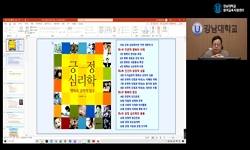‘OECD Education 2030 프로젝트’에서 강조하는 학습자 주도성 개념은 2022 초ㆍ중등학교 교육과정 총론의 시안에도 직접적으로 등장하며 ‘2022 개정 교육과정’의 핵심 개념이자 교육과�...
http://chineseinput.net/에서 pinyin(병음)방식으로 중국어를 변환할 수 있습니다.
변환된 중국어를 복사하여 사용하시면 됩니다.
- 中文 을 입력하시려면 zhongwen을 입력하시고 space를누르시면됩니다.
- 北京 을 입력하시려면 beijing을 입력하시고 space를 누르시면 됩니다.

왕수인의 良知 개념을 통한 학습자 주도성(Student Agency)의 재개념화 = Reconceptualizing Student Agency Through Wang Shou-Ren’s Concept of Yang Jee(良知)
한글로보기부가정보
국문 초록 (Abstract)
이에 본 연구에서는 OECD의 학습자 주도성 및 왕수인의 양지 개념을 분석하며 OECD의 학습자 주도성과 왕수인의 양지 간의 동이점을 고찰한다. 그리고 OECD의 학습자 주도성의 비판점을 왕수인의 양지를 통해 보완하여 재개념화하고자 한다. 학습자 주도성의 재개념화를 위해 OECD 학습자 주도성과 왕수인의 양지와의 공통점인 주체성, 자율성, 성찰성, 참여성을 강조하고, OECD의 학습자 주도성이 지닌 비판점으로서 원자론적 자아관과 이성 중심적인 측면을 왕수인의 양지가 지닌 관계적 자아관과 이성적ㆍ정서적 도덕심으로 보완하였다. 재개념화된 학습자 주도성은 ‘관계적 존재로서 학습자가 만물일체의 행복을 위해 이성적ㆍ감성적인 도덕심을 발휘하여 주체적이고 실천적으로 세계에 참여하며, 내면과 세상과의 관계에 대한 도덕적 성찰을 통해 책임의식을 함양하는 것’으로 정의된다.
‘OECD Education 2030 프로젝트’에서 강조하는 학습자 주도성 개념은 2022 초ㆍ중등학교 교육과정 총론의 시안에도 직접적으로 등장하며 ‘2022 개정 교육과정’의 핵심 개념이자 교육과정의 설계 원리로서 기능하였다. 그러나, 여러 학자들을 통해 현재 교육과정 개정에 깊이 관여된 OECD의 학습자 주도성 개념에 대한 심층적인 검토 및 성찰이 충분히 이루어지지 못했다는 비판점이 제기되고 있다.
이에 본 연구에서는 OECD의 학습자 주도성 및 왕수인의 양지 개념을 분석하며 OECD의 학습자 주도성과 왕수인의 양지 간의 동이점을 고찰한다. 그리고 OECD의 학습자 주도성의 비판점을 왕수인의 양지를 통해 보완하여 재개념화하고자 한다. 학습자 주도성의 재개념화를 위해 OECD 학습자 주도성과 왕수인의 양지와의 공통점인 주체성, 자율성, 성찰성, 참여성을 강조하고, OECD의 학습자 주도성이 지닌 비판점으로서 원자론적 자아관과 이성 중심적인 측면을 왕수인의 양지가 지닌 관계적 자아관과 이성적ㆍ정서적 도덕심으로 보완하였다. 재개념화된 학습자 주도성은 ‘관계적 존재로서 학습자가 만물일체의 행복을 위해 이성적ㆍ감성적인 도덕심을 발휘하여 주체적이고 실천적으로 세계에 참여하며, 내면과 세상과의 관계에 대한 도덕적 성찰을 통해 책임의식을 함양하는 것’으로 정의된다.
다국어 초록 (Multilingual Abstract)
The study analyzes the concept of student agency from the OECD and Wang Shou Ren’s concept of Yang Jee, examining the similarities and differences between the two concepts. In addition, the aim is to complement and re-conceptualize the criticisms of the OECD’s student agency through Wang Shou Ren’s concept of Yang Jee. To re-conceptualize student agency, the commonalities of subjectivity, autonomy, reflectiveness, and participation between the OECD’s student agency and Wang Shou Ren’s concept of Yang Jee are emphasized. Additionally, the criticisms of the OECD’s concept of student agency, such as its atomistic view of the self and rationalistic aspects, are addressed by complementing them with Wang Shou Ren’s relational view of the self and his rational-emotional moral sensibility. Re-conceptualized student agency is defined as the student, as a relational being, exercising rational and emotional moral sensibility to autonomously and practically participate in the world for the happiness of all, while cultivating a sense of responsibility through moral reflection on the relationship between the self and the world.
The concept of student agency, emphasized in the ‘OECD Education 2030 Project,’ is directly reflected in the draft of the 2022 General Curriculum for Elementary and Secondary Schools and serves as a core concept and design principle of the 2022 Re...
The concept of student agency, emphasized in the ‘OECD Education 2030 Project,’ is directly reflected in the draft of the 2022 General Curriculum for Elementary and Secondary Schools and serves as a core concept and design principle of the 2022 Revised Curriculum. However, criticisms have been raised that there has not been sufficient in-depth review or reflection on the concept of student agency by the OECD, which is deeply involved in the current curriculum revision, as highlighted by various scholars.
The study analyzes the concept of student agency from the OECD and Wang Shou Ren’s concept of Yang Jee, examining the similarities and differences between the two concepts. In addition, the aim is to complement and re-conceptualize the criticisms of the OECD’s student agency through Wang Shou Ren’s concept of Yang Jee. To re-conceptualize student agency, the commonalities of subjectivity, autonomy, reflectiveness, and participation between the OECD’s student agency and Wang Shou Ren’s concept of Yang Jee are emphasized. Additionally, the criticisms of the OECD’s concept of student agency, such as its atomistic view of the self and rationalistic aspects, are addressed by complementing them with Wang Shou Ren’s relational view of the self and his rational-emotional moral sensibility. Re-conceptualized student agency is defined as the student, as a relational being, exercising rational and emotional moral sensibility to autonomously and practically participate in the world for the happiness of all, while cultivating a sense of responsibility through moral reflection on the relationship between the self and the world.
동일학술지(권/호) 다른 논문
-
왕양명 양지의 회복과 실천의 일상 적용 가능성 연구 - 조심(照心)과 망심(妄心)을 중심으로 -
- 한국양명학회
- 이태형
- 2024
- KCI등재
-
- 한국양명학회
- 선병삼
- 2024
- KCI등재
-
계본의 『論語私存』 연구 - 양명학적 경학의 한 예시(3) -
- 한국양명학회
- 조희정
- 2024
- KCI등재
-
- 한국양명학회
- 김지연
- 2024
- KCI등재




 KCI
KCI






